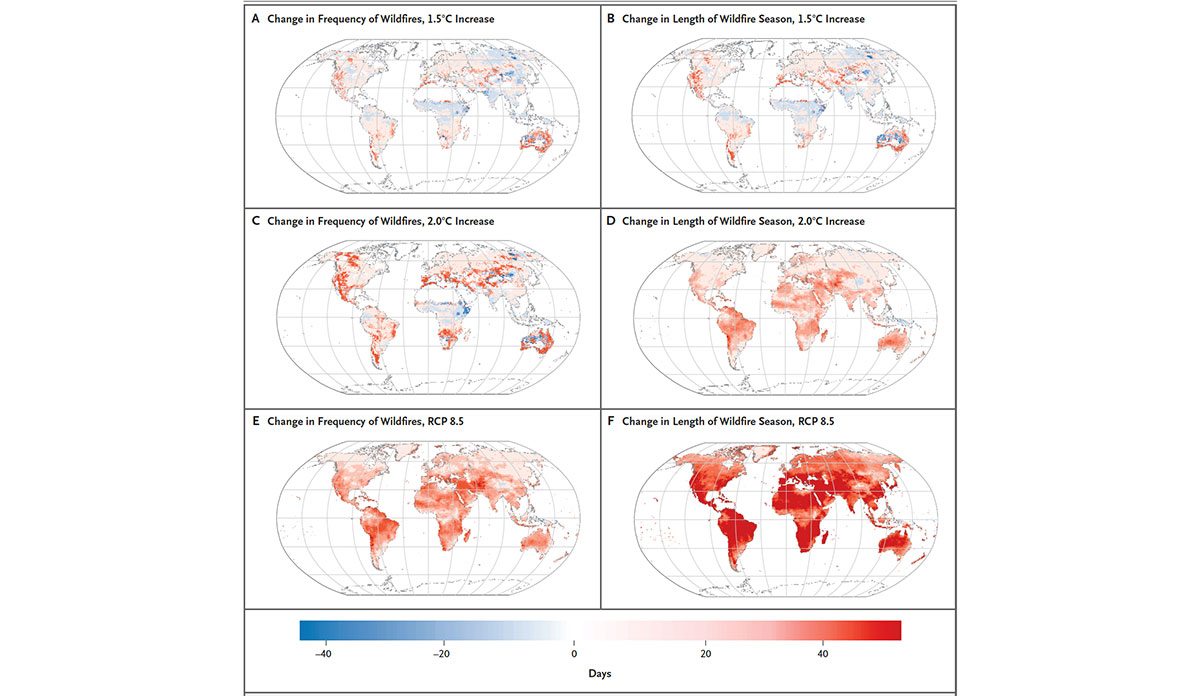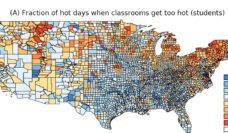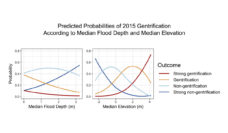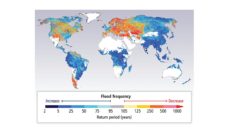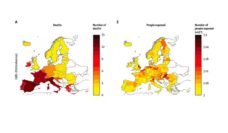This past summer, for the first time, two wildfires cascaded over the crest of the Sierra Mountains. Because the barren rocky tops present nothing to burn, flames can only pass if the fire and winds are strong enough, conditions never before recorded.
In 2021, 56 million acres of land burned in the U.S., Canada, and Siberia. The fires in Siberia alone covered more area than all other 2021 fires combined and released more carbon dioxide in two months than Germany will release in a year.
The maps, created by Rongbin Xu and team, show that the threat of wildfires will only escalate due to climate change and the presence of all three components needed to start a fire: fuel, oxygen, and ignition. The bottom two maps highlight wildfire projections for high greenhouse-gas emissions if there are no mitigation efforts (i.e. business as usual), estimated to result in a 4.3 degree increase in global temperature by 2100. The scenarios represented in maps a, b, c, and d indicate that limiting warming to 1.5 degree and 2 degree increases in global temperature would significantly reduce the future threat of wildfires compared to business as usual (although 2 degrees of warming will present a multitude of other issues). Read: the single most important effort to reduce the impacts of wildfires on health is to reduce emissions.
For individuals living in wildfire territory, the disruption goes beyond acreage destroyed. If the fire gets close enough, people experience life upheavals through evacuations and loss of property. Wildfires, and the smoke from them, present short- and long-term impacts on surrounding communities. For most communities, air quality plummets and smoke is more dangerous for those with heart and lung disease and diabetes, children, pregnant women, and the elderly. Smoke increases risk of visits to emergency departments, and premature death.
The longer wildfire season lasts the longer people live surrounded by smoke. The toll of wildfires is only growing.
Databyte via Rongbin Xu et al. Wildfires, Global Change, and Human Health. New England Journal of Medicine, November 2020.









